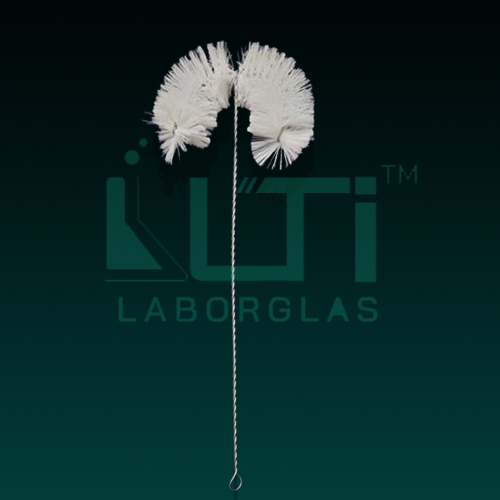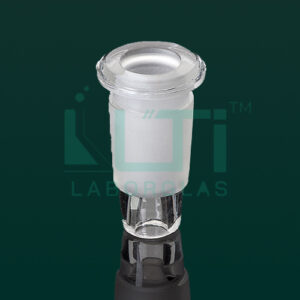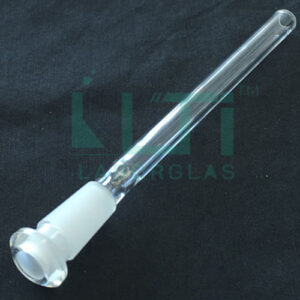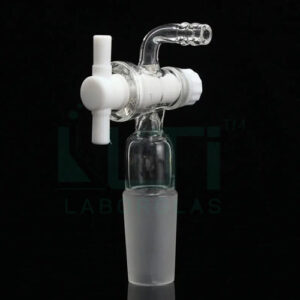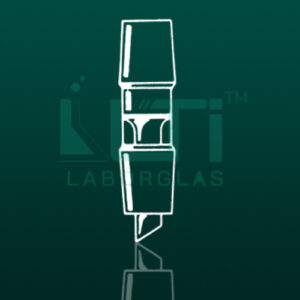• Made of Nylon Bristles
| PART No. | Type | Material | PACK Qty. |
| 5830 | Flask Brush | Nylon | 50 |
Here are some common uses of brushes for cleaning flasks in a laboratory:
- General Cleaning: Flask brushes are used for routine cleaning of glass flasks. They help remove residues, stains, and contaminants that may accumulate during experiments.
- Residue Removal: After a chemical reaction or experiment, there may be residual substances adhering to the inner surfaces of flasks. Brushes are used to scrub away these residues.
- Drying Assistance: Brushes can assist in drying flasks by facilitating the removal of water droplets or residual moisture. This is especially important for experiments where moisture content must be controlled.
- Stain Removal: Stubborn stains on the inner walls of flasks can be effectively addressed using flask brushes. This is particularly relevant for reactions involving colored compounds or substances that may leave stains.
- Decontamination: Brushes are used as part of decontamination procedures to remove any traces of contaminants that might compromise subsequent experiments.
- Preventing Cross-Contamination: Regular cleaning of flasks with dedicated brushes helps prevent cross-contamination between different experiments and ensures the integrity of subsequent analyses.
- Routine Maintenance: Incorporating flask brushes into a routine maintenance schedule helps extend the lifespan of laboratory glassware by preventing the buildup of residues that can lead to deterioration.
- Cleaning Glass Joints and Necks: Brushes designed for flasks are often shaped to effectively clean the necks and joints of various flask types. This is important for maintaining proper sealing and preventing leaks during experiments.
- Flask Types: Different types of flask brushes are available to match the shapes and sizes of various flasks, including round-bottom flasks, volumetric flasks, and Erlenmeyer flasks.
- Laboratory Hygiene: Regular cleaning with flask brushes contributes to good laboratory hygiene practices, ensuring that glassware is free from contaminants that could compromise experimental results.
- Safety Considerations: Clean glassware is essential for safety in the laboratory. Residue-free flasks reduce the risk of reactions due to unexpected interactions between substances.

